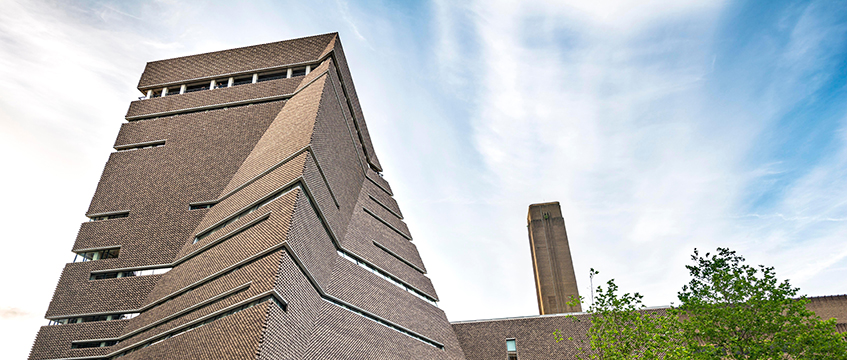There is no right not to be overlooked in English law, and the Tate Gallery’s viewing deck isn’t a “nuisance” a lawyer for the gallery told the Supreme Court.
Judges at the Supreme Court are hearing an appeal brought by residents of an apartment block adjacent to the Tate on the South Bank in London. The case, Fearne and others v the Board of Trustees of the Tate Gallery, is one of the most high-profile breach of privacy claims to hit the Supreme Court in recent years.
The residents of the multimillion-pound apartments, at Neo Bankside on Holland Street, SE1, are claiming the Tate’s viewing platform is a “nuisance” to them because it enables gallery visitors to look directly into their floor-to-ceiling windows, turning their homes into a “public exhibit”.
So far, they have had little luck in the courts. In February 2019, High Court judge Mr Justice Mann rejected their claim, ruling that, by living in homes with floor-to-ceiling windows, residents had created a “self-induced incentive to gaze”. He suggested residents install net curtains.
Yesterday, Tom Weekes QC, representing the residents, argued that judges at both the High Court and the Court of Appeal had erred when they ruled that “visual intrusion” cannot be “a nuisance”.
However, Guy Fetherstonhaugh QC, representing the gallery said that privacy, and not being overlooked, isn’t a right in England.
“There is no right in the country that is based on the right not to be overlooked,” he told the court. “Privacy has never been held to be a right – if it had done, it would have meant development in England would have been stopped in its tracks.”
Being overlooked isn’t a nuisance in the same way as noise, said Fetherstonhaugh, because “if you don’t like it you can close the curtains”. Putting in earplugs won’t make a nuisance noise go away, but closing curtains means that any nuisance from being overlooked “is just not there anymore”.
“How do you measure it?” he said. “How do you even detect it?” Viewers on the platform might be looking at the architecture of the building and not the inside of the flats.
He said that for the “seven-and-a-half hours five days a week” that the viewing deck was open, the residents could have taken “perfectly sensible preventative measures” to stop people on the deck from looking at them.
“The appellants chose not draw their blinds or close their curtains,” he said. “This is probably because they wanted to see the view from their apartments.
“There is no right to a view,” he said. “What the appellants are saying is ‘we want to be able to look out at the world, and not have you looking in at us’,” he said.
Yesterday, for the residents, Tom Weekes QC said that being overlooked can be a nuisance in law.
“Whether a landowner’s activity is a nuisance turns simply on whether the activity seriously harms the amenity of his or her neighbour’s land,” he said.
“The nature of the activity, and the reason why the activity harms the amenity of the neighbour’s land are immaterial. So, all kinds of activities can be a nuisance.”
In this case, the viewing gallery has a “terrible impact on the use and occupation of the flats”, he said.
“It is just obvious that nobody should be subjected to watching, accompanied with photography and filming, by more than half a million people a year.”
The viewing platform, part of an extension to Tate Modern named the Blavatnik Building, has been open to the public since June 2016. The walkway on the 10th floor offers panoramic views of London, but also allows people to stare into the adjacent Neo Bankside flats.
The residents say that, from a significant part of the viewing platform, there is “little to view apart from Neo Bankside”, which means visitors inevitably have their eyes drawn to their luxury homes.
According to their written particulars of claim, “when the viewing platform is open to the public, a near constant stream of visitors subject the claimants’ flats (and other flats in Neo Bankside) to prolonged and a high degree of visual scrutiny”.
This, they argued, includes use of binoculars or phones or cameras with zoom lenses, with resulting photographs or films posted on social media sites.
They claim they and their families are subjected to near-constant “surveillance” when they are in their flats, turning them into “something akin to a public exhibit”, and are seeking a court order restricting use of the viewing platform.
The case is scheduled to finish later today, with judgment due to be given at a later date.
Photo: Mara Brandl/imageBROKER/REX/Shutterstock








